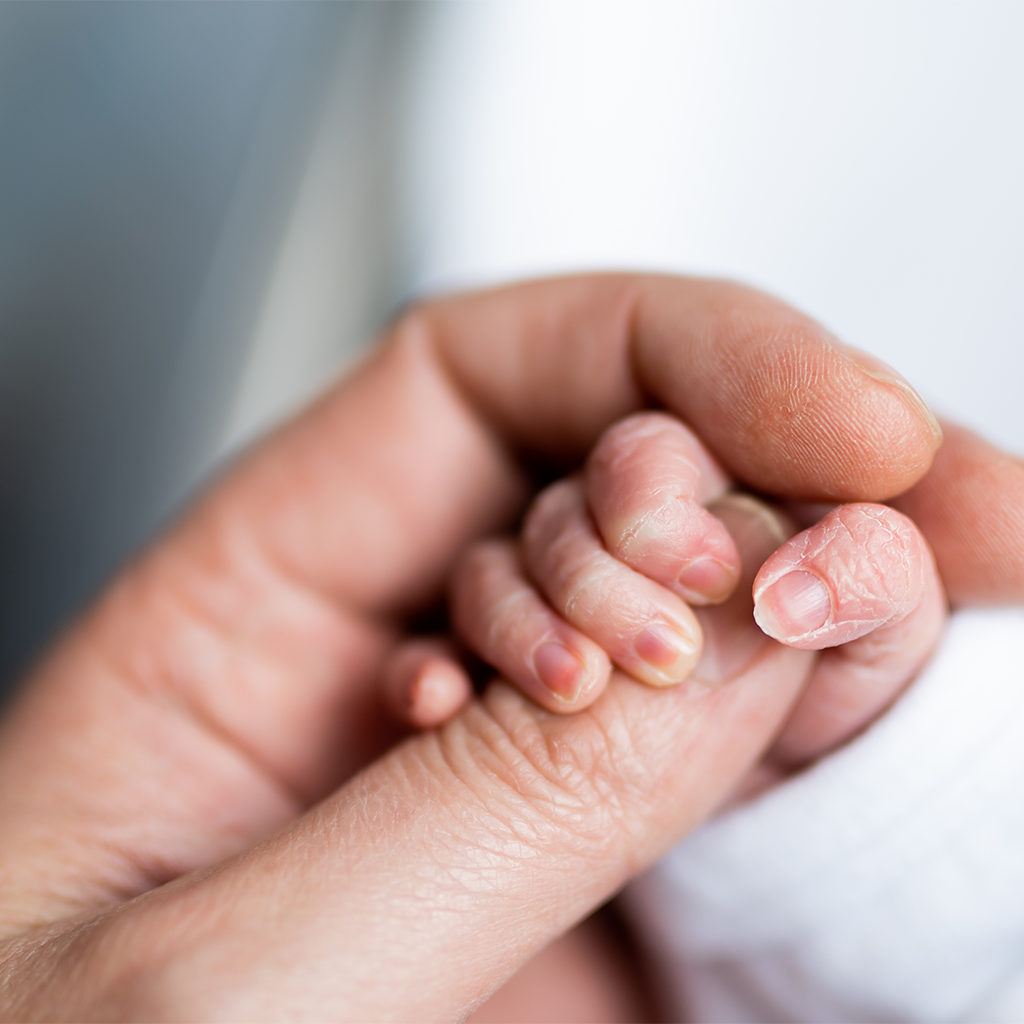Premature babies: 10 questions to the neonatologist

Publication date: 01-02-2023
Updated on: 28-04-2023
Topic: Pediatrics
Estimated reading time: 1 min
Article Author
Clelia AndolinaMedical Editor
Antonella Poloniato
Editor and Translator
Viktoryia LuhakovaToday we will talk about premature babies and the specifics of caring for them with Dr. Antonella Poloniato, Pediatric Neonatologist and coordinator of the Neonatology department at the Ospedale San Raffaele.
1. Premature babies in Italy: how many are there?
Approximately 500,000 babies are born in Italy each year, about 10% of which are born before 37 weeks of gestation and therefore considered premature.
Prematurity has a different severity based on the gestational age at which the baby is born: the vast majority of preterm births are born between 34 and 36 weeks of gestation, and 1 in 10 preterm infants is born prior to 32 weeks of gestation.
Another important parameter for predicting the intensity of care is birth weight: about 1% of babies are born with a very low weight of less than one pound and a half mostly at low gestational ages.
2. What are the causes of prematurity?
There are many causes of prematurity, but in many cases a trigger cannot be identified. There are pre-existing or pregnancy-related conditions that can promote preterm birth. They may predispose to preterm birth, for example:
- local infections of the reproductive system;
- diseases of the placenta;
- malformations or major uterine distention (as occurs in multiple pregnancies).
In some cases, it may be necessary for a woman to give birth before the end of gestation in order for her health or the health of her unborn child to be preserved: this is the case with preterm birth, of which twin and multigemellar pregnancies are a part.
Then there are causes related to uncomfortable external conditions that can lead to earlier childbirth, such as:
- work overload;
- lack of maternity protection especially in the last months of pregnancy;
- high level of stress.
3. Can prematurity be prevented?
The World Health Organization has issued a challenge to try to reduce preterm births, estimated at about 15 million worldwide, but also and especially the increased morbidity and mortality of babies born before term and living in low-development countries.
In Italy, we are in a relatively privileged, but improvable, condition: women wishing to become pregnant have access to an excellent level of care, comparable and sometimes higher than in other industrialized countries.
However, it is essential to medically implement everything possible to identify the risk factors causing premature birth such as infections of the genital system.
4. Premature birth: what are the consequences?
Consequences and severity depend on how prematurely one is born: in the past 30 years, neonatology has acquired many advanced care techniques, neonatology culture has grown, and morbidity even at low gestational ages is reduced. Nonetheless, prematurity still remains a condition that is not physiological and to be paid close attention to.
To date more than 85 percent of those born under 1 pound 2 ounces or under 32 weeks receive prophylaxis before birth to induce lung maturation, so they are benefited in the development of the respiratory system, one of the main critical points of preterm birth.
Techniques and knowledge have been acquired that enable preterm births to continue their maturational journey outside the mother's womb. The technology is certainly important, but even more important is the care of the infant, keeping him or her growing outside the mother's womb, taking care of the environment and sensory stimuli so that they are as modulated as possible.
The infant's nervous system has its strength in its extreme plasticity and the fact that it continues its maturation until 2 years of age: this makes it on the one hand very vulnerable, on the other hand extremely responsive to sensory, environmental and relational stimuli. This is why in recent years, there has been a shift from caring only for a premature baby to caring for him and his parents.
5. How to intervene when a baby is born before term
It depends on the severity: babies born before 32 weeks' gestation or under one pound and a half of birth weight will most likely need respiratory and nutritional support. In this case, the treatment is more complex and aims to mimic intrauterine growth, supporting all organs, but particularly nutrition in a comprehensive manner.
Even for babies born before term, breast milk is the food to be ensured because of its important benefits: it changes according to gestational age and the needs of the baby, so every baby has the breast milk he or she needs. This is why it is crucial to support first time mothers at this particularly sensitive time.
Babies who are born between 32 and 34 weeks may sometimes have good weight and fewer difficulties, but still need support, for example, respiratory support, perhaps transient and only in the first few days of life; they may also present difficulties in feeding, due to the immaturity of their sucking system.
Infants born beyond 34 weeks' gestation, also called late preterm by the Anglo-Saxons, do not usually require intensive care at birth and can often remain with their mothers in a room, although they will be observed more closely, because they are less able than full-term births to maintain adequate temperature control, adequate glucose levels especially in the first few hours of life, and coordinate sucking-breathing and swallowing abilities.
6. The role of parents
Parents are of paramount importance in neonatal illness: their role is curative, and the relationship they have with the baby must begin from the very beginning. It is important to note that when a baby is born before the due date, its mom and dad also become such before the appointed time. That is why it is important to support them on this path.
After the years of emergency due to the pandemic, neonatal and neonatal intensive care units have reopened their doors to parents and family members, re-establishing the necessary and irreplaceable parental relationship from the first hours after delivery.
7. When does a premature infant recover?
Normally, preterm births recover within the first few months of life or within the first year of life, unless they have had growth restriction during pregnancy. For babies born younger, under 32 weeks, neonatologists consider the presumed date of birth to calculate the correct age. Until 2-3 years of age, in fact, the correct gestational age of birth guides the assessment of growth in these children.
International studies have yielded growth curves, so-called centiles, that are more appropriate and different from those of babies born at term.
A child raised properly in utero can be expected to regain his weight around 1 to 2 years of age and stature between 2 and 4 years of age. Of course, everything then depends on his or her personal history.
8. Is a premature baby destined to have health problems?
It is necessary to individualize each medical history: there are infants born very preterm who have a smooth postnatal course, which interferes little with their growth in weight and height and therefore present few postnatal growth problems.
It has been found that the more complicated the period after birth turns out to be, the greater the possibility that it may interfere with the child's somatic growth and neurodevelopment.
It is very important that each baby be considered for its own history, and it is difficult to generalize: in light of current care, premature babies have a great chance of growing up healthy.
Therefore, it is increasingly necessary to establish follow-up of low-birth-weight babies so that difficulties, if any, are early reserved.
9. Preterm birth: can it happen again?
It depends on the reasons that triggered the prematurity: if the cause is due to conditions of mother's uterus, there is a chance that this could recur. If, on the other hand, the event is isolated, it will probably not recur and a woman will be able to carry the pregnancy to term without risk.
It is good that all maternal conditions (including chronic ones) are investigated and treated, if possible, to prevent a recurrence.
10. Support offered by Ospedale San Raffaele
Babies of all gestational ages are born in our department and are cared for nutritionally and respiratorily. Since 2019, our hospital has become a Baby Friendly Hospital: an important focus is also placed on supporting breastfeeding for preterm births and their mothers.
In addition, follow-up for the severely prematurely born has long been organized, covering the pediatric aspect as well as the neurological aspect so as to follow the newborn in all aspects, according to national and international recommendations.
Lastly, it is important to emphasize that at San Raffaele, the care and treatment of the critically ill newborn and his or her family is multidisciplinary: neonatologists work as part of a team composed of specialists in different medical disciplines, nurses, perinatal psychologists, and physical therapists who support them in making individualized diagnostic and therapeutic decisions.